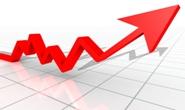Market Data

April 29, 2017
Chicago Business Barometer at Highest Level in Over Two Years
Written by Sandy Williams
The Chicago Business Barometer in April reached its highest level since January 2015, posting a score of 58.3 from 57.7 in March.
Growing demand for manufactured products pushed new orders up 5.5 points to a near three-year high. The production index in April was at another high level although receding slightly to 59.5 from 61.7.
Backlogs contracted for the fifth month and at a faster rate than recent months. Supplier delivery times lengthened, with the index moving 1.6 points higher to 56.0
Prices paid were up 14 percent year over year, but increased at a slower pace in April. Factory gate prices eased somewhat during the month.
Employment levels expanded in April pulling out of contraction after falling below the neutral 50 mark in March. The employment index expanded only seven times in the last 24 months but two of those have been in the last three months.
A recent hike in interest rates was not of great concern to survey respondents. More than half of those responding to the special question said they expect to remain unaffected.
“The April Chicago report showcased another impressive month, with firms reporting solid growth. Rising demand and firm production led to a pick-up in hiring by firms. Although the employment indicator has been bumpy, in and out of contraction, if the current month’s rise is sustained, it could provide a boost to the labor market,” said Shaily Mittal, senior economist at MNI Indicators.
The Chicago Business Barometer is a composite diffusion indicator made up of the Production, New Orders, Order Backlogs, Employment and Supplier Deliveries indicators and is designed to predict future changes in US gross domestic product (GDP). An indicator reading above 50 indicates expansion compared with a month earlier while below 50 indicates contraction. A result of 50 is neutral. The farther an indicator is above or below 50, the greater or smaller the rate of change.








